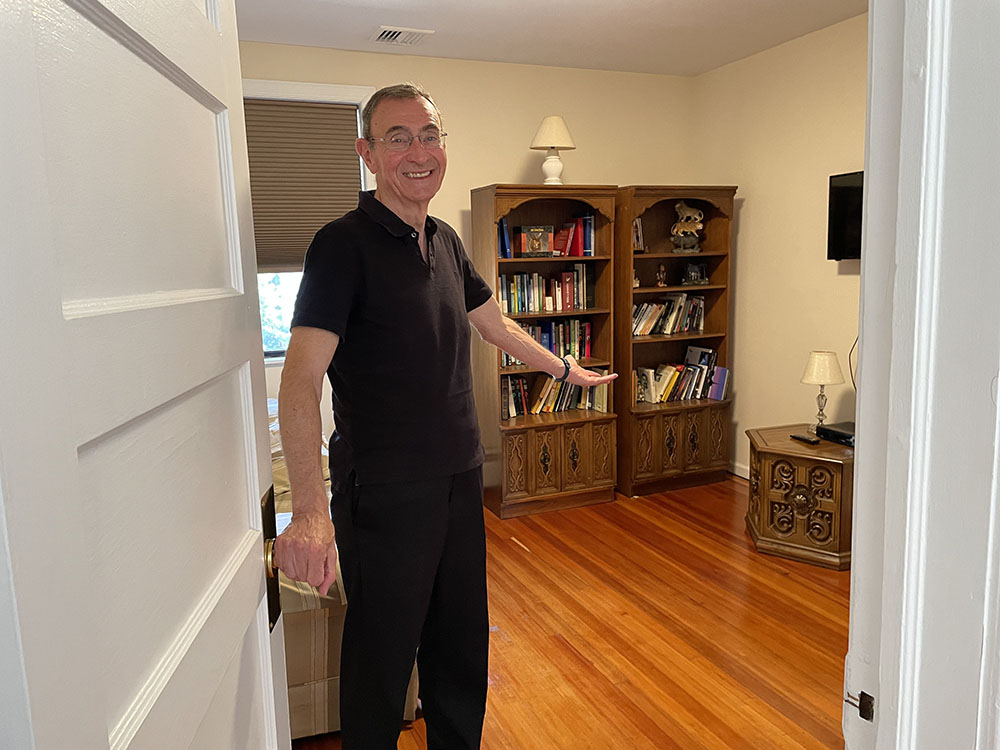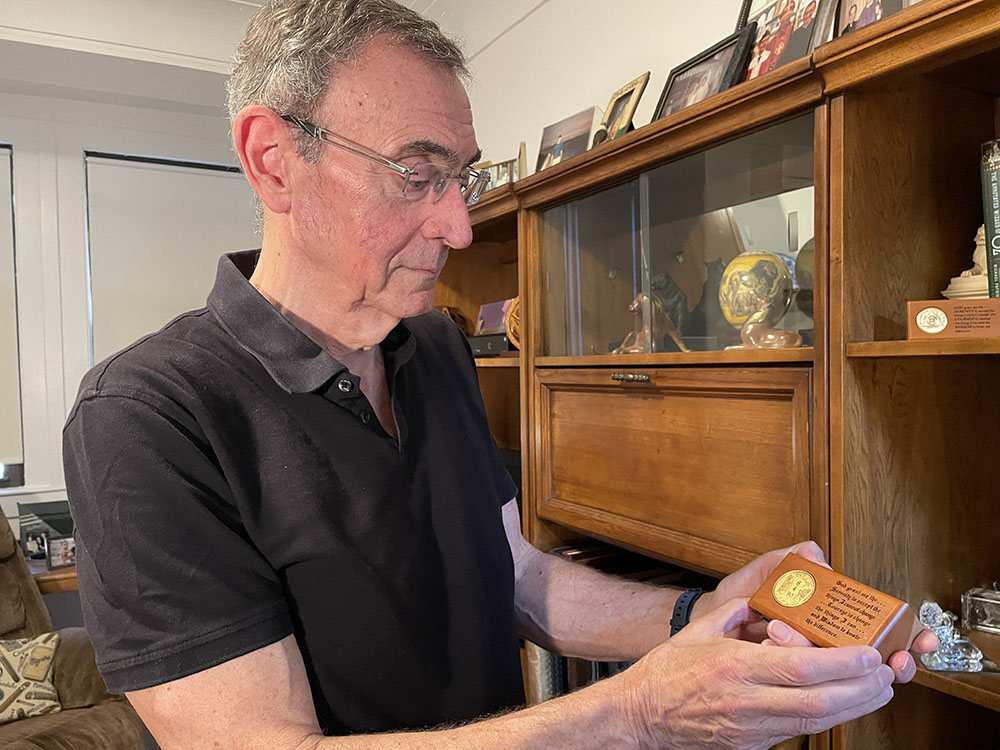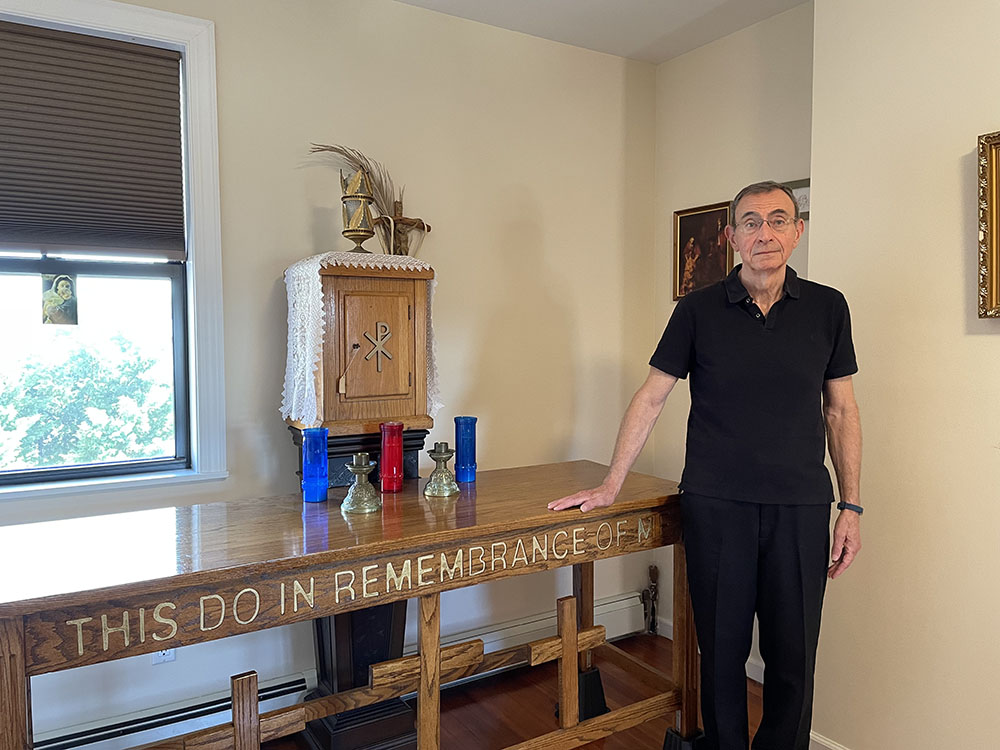
MASPETH — When Msgr. Joseph Calise was a young priest, he was caught in the grip of alcohol to the point that it almost took over his life. Looking back, he can recall the moment he knew he needed help.
“I had been ordained about 10 years, and at that point, my drinking was throughout the day, and it was starting to affect my work,” Msgr. Calise recalled. “It was affecting my relationship with my family. It was starting to affect my relationship with parishioners.”
Ultimately, Msgr. Calise got help and has now been sober for 34 years. His experience eventually led him to look for ways to help other priests, and with the help of the diocese, he established a place to support priests suffering from substance abuse transition from an inpatient treatment facility back into ministry.
Called Transition House, the center has been up and running for seven years in the rectory of the Parish of Transfiguration-St. Stanislaus Kostka in Maspeth, where Msgr. Calise is the pastor.
Transition House has since expanded its mission to include clergy with non-addiction issues — like those awaiting visa approvals, coping with medical ailments, or in need of a respite from the pressures of work.
“Over the course of the seven years, the purpose has changed dramatically,” Msgr. Calise explained. “We started it initially as a place for priests who would have gone away for some type of addictive behavior. And over the course of these years, it’s begun to have a much bigger clientele. Of course, we’re finding that there are more and more priests who need a place to stay temporarily.”
Msgr. Calise is quick to point out that Transition House is not a treatment facility or a clinic but instead a “house of hospitality.”
“This is the place where someone can live after they’ve already gone through all of that,” Msgr. Calise said. “This just gives them a chance to get re-acclimated to the diocese. Hopefully, what they find here is a spirit of welcome and a spirit of support.”
The genesis of Transition House can be traced back to Bishop Emeritus Nicholas DiMarzio, who approached Msgr. Calise and asked if he knew of a way to help priests assimilate back into priestly life after completing substance abuse treatment programs.

to celebrate another year of sobriety. (Photo: Paula Katinas)
Msgr. Calise suggested opening a house where priests could stay on a temporary basis. “And he told me, ‘Okay, well, then you need to build it.’ And that’s how this idea was born,” he said.
There is no time limit on the length of stay at Transition House — some priests stay for a few weeks, and others stay there for several months. The diocese does have knowledge of when a priest enters and completes a treatment program, so Msgr. Calise can prepare for their arrival.
In Msgr. Calise, the priests are finding a sympathetic ear who has walked in their shoes. His substance abuse dates back to when he began drinking as a teenager, eventually drifting into alcoholism.
“When I look back on those days, I remember a lot of pain, and I remember a lot of sadness,” Msgr. Calise recalled. “But I think of the good that’s been accomplished because I think of the way that I’ve been able to have a bit of an impact on other people’s lives.”
Msgr. Calise began a 12-step treatment program in 1990 when he was 36 years old. He was a decade into his priesthood and entered the program at the urging of his pastor.
Msgr. Calise, who also resides in the rectory, keeps “sobriety coins” — chips given by Alcoholics Anonymous groups to individuals to mark each milestone from 24 hours up to annual achievements — in his apartment.
“I’ve been sober for 34 years, and in that time, I’ve just gotten so much better,” Msgr. Calise noted.
Not all of the rooms in Transition House — which has six bedrooms, a sitting room, and a chapel — house priests battling addiction. Of the priests who have come through the doors over the past seven years, one-third were recovering from addictions to drugs or alcohol. The other two-thirds were there for non-addiction-related reasons.
Statistics on priests and addiction are hard to come by. However, the St. John Vianney Center in Downingtown, Pennsylvania, estimates that 10% of priests in the U.S. are grappling with alcohol or drug addiction issues. The treatment facility that helps clergy issued a report in 2023 stating that only 2% of those priests seek treatment.

There are many reasons priests get caught up in the cycle of abuse. Msgr. Calise pointed to the loneliness and isolation as a factor.
“We do live very isolated lives. Not only do you have a lot of priests who are in their rectories by themselves, but even if there are other priests, there comes a point at night when everybody’s in their own room,” Msgr. Calise said. “It causes a lot of loneliness, and loneliness seeks comfort.”
After seven years running Transition House, Msgr. Calise is grateful he gets to have a role in helping his fellow priests.
“I’ve been able to bring a message of hope to so many other people,” he said. “But it’s because of what I went through that the message is credible.”
For a list of resources please visit: DIOCESEOFBROOKLYN.ORG/ADDICTION-RECOVERY-MONTH
